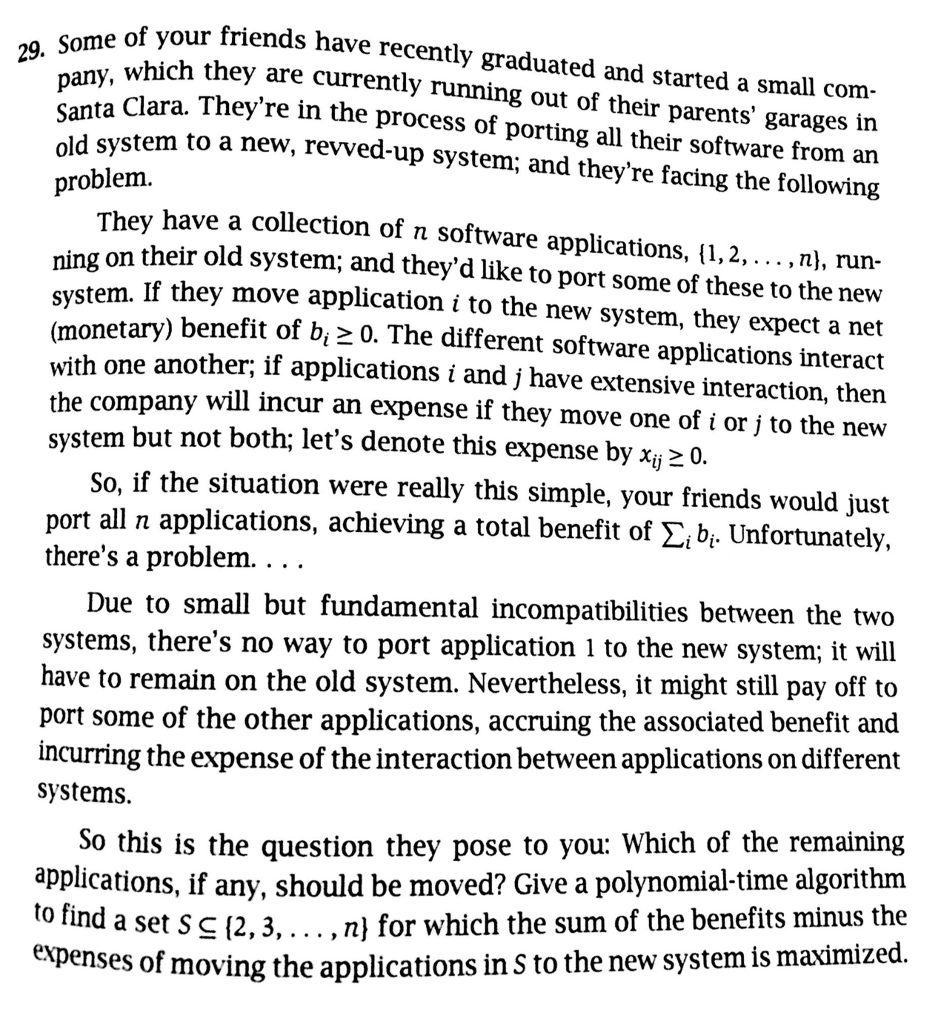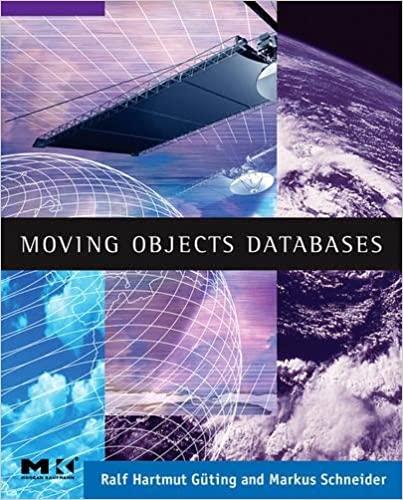Question
Textbook Exercise 29 in Chapter 7. Show how to solve this problem by reformulating it to the problem of finding a minimum cut from a
Textbook Exercise 29 in Chapter 7. Show how to solve this problem by reformulating it to the problem of finding a minimum cut from a flow network built from the set V of n applications v1, v2, ..., and vn in a manner similar to the approach used in the image segmentation problem (see Section 7.10). State clearly what the source node s and the sink node t each represent and how to represent in the flow network the n applications, the benefit bi of porting an application vi to the new system, and the expense (or penalty) xij of two applications vi and vj being separated. 
Step by Step Solution
There are 3 Steps involved in it
Step: 1

Get Instant Access to Expert-Tailored Solutions
See step-by-step solutions with expert insights and AI powered tools for academic success
Step: 2

Step: 3

Ace Your Homework with AI
Get the answers you need in no time with our AI-driven, step-by-step assistance
Get Started


